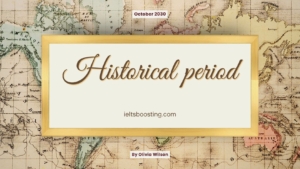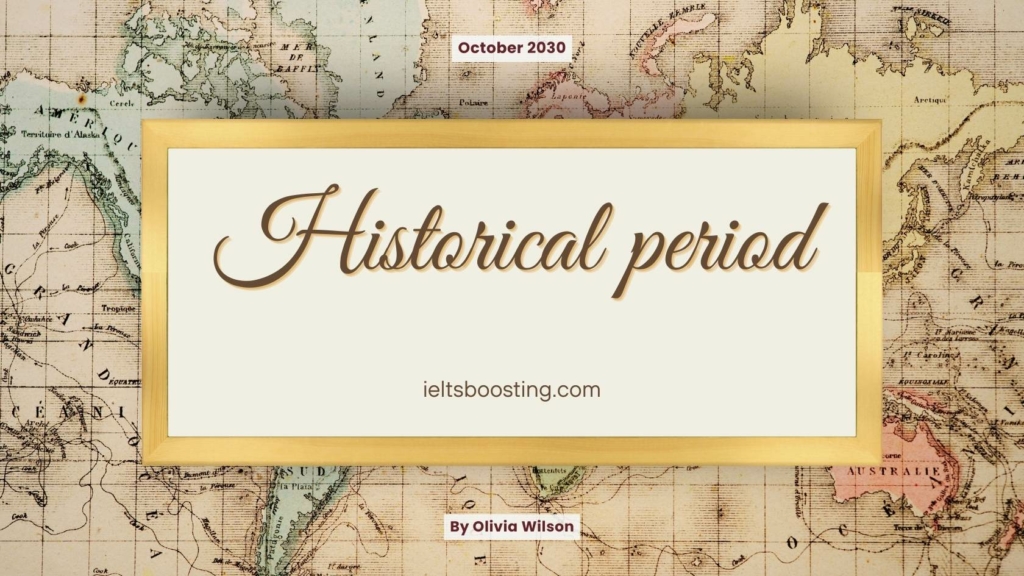Describe a historical period you would like to know more
You should say to describe a historical period you would like to know more
What you are interested in
When it happened
What you know about it
And why you would like to learn more
Sample answer to describe a historical period you would like to know more
I’ve always been fascinated by the Renaissance period, a remarkable era of cultural, artistic, and scientific awakening that began in Italy around the 14th century and spread across Europe. This was when some of the most influential artists and thinkers like Leonardo da Vinci and Michelangelo were creating their masterpieces. From what I know, it was a time of great innovation and exploration, not just in the arts but also in philosophy, literature, and science.
The Renaissance marked the transition from the Middle Ages to modernity, and it’s credited with fostering a new spirit of curiosity and individualism. I’m particularly intrigued by how this era laid the foundations for the modern world in so many ways. I’d love to delve deeper into the lives of the people who lived during this time, their daily experiences, and how their work and ideas continue to impact us today.
I think learning more about the Renaissance would give me a deeper understanding of how it shaped our current perspectives on art, science, and human potential. It’s a period that encapsulates the beauty of human creativity and intellect, which is why I find it so captivating.
Useful vocabulary to describe a historical period you would like to know more
- Cultural awakening: A period where there is a renewed focus on and development in culture.
- Masterpieces: Works of art or literature of outstanding artistry, skill, or workmanship.
- Innovation: The action or process of innovating, introducing new ideas or methods.
- Modernity: The quality or condition of being modern.
- Individualism: A social theory favoring freedom of action for individuals over collective or state control.
- Delve deeper: To investigate something more thoroughly.
- Human potential: The capacity for humans to improve themselves through studying, training, and practice.
- Captivating: Capable of attracting and holding interest; charming.

Describe a historical period you would like to know more
Explore more: ielts speaking part 2
Part 3 – describe a historical period you would like to know more
Should everyone know history?
I definitely think having some knowledge of history is important for everyone. Knowing history helps us understand the world we live in today – like why certain things are the way they are, and how past events have shaped modern society. It’s not just about memorizing dates and names, but more about understanding the context and lessons from the past. This can really broaden our perspective and prevent us from repeating past mistakes. Plus, history can be super interesting, with all its stories and characters, and it can give us a sense of identity and belonging.
Useful Vocabulary:
- Understanding the context: Comprehending the circumstances or setting of a particular event or period.
- Shaped modern society: Influenced or formed the way our current society functions.
- Broaden our perspective: To expand the way we view or think about something.
- Repeating past mistakes: Making the same errors as were made in the past.
- Sense of identity: The feeling of knowing who you are and where you belong.
- Belonging: The feeling of being connected or affiliated with something or someone.
In what ways can children learn history?
Kids can learn history in so many fun and engaging ways nowadays. Obviously, there are traditional classroom lessons, but it’s way more than just textbook learning. Interactive methods like visiting museums or historical sites bring history to life. It’s one thing to read about an ancient civilization, but it’s a whole different experience to actually see artifacts or stand where historical events took place. There are also tons of educational games and apps that make learning history feel like an adventure. And let’s not forget movies or documentaries – they can really capture a child’s imagination and make historical figures and events more relatable and exciting.
Useful Vocabulary:
- Interactive methods: Engaging ways of learning that involve active participation.
- Artifacts: Objects made by humans, typically of cultural or historical interest.
- Educational games: Games designed to teach people about certain subjects, expand concepts, reinforce development, or assist in learning a skill as they play.
- Capture a child’s imagination: To engage a child’s interest and creative thinking.
- Relatable: Able to be related to or connected with.
- Historical figures: People who were important in history.
- Events: Things that happen, especially significant occurrences.
What are the differences between learning history from books and from videos?
Learning history from books versus videos has some pretty distinct differences. When you read a history book, it’s often more detailed and comprehensive. You get the chance to dive deep into topics, understand the nuances, and think critically about the events and their impacts. However, videos, like documentaries or historical dramas, offer a more visual and engaging experience. They bring history to life, making it easier for some people, especially kids, to grasp and remember the events. Videos can also capture the emotions and atmosphere of historical periods, which might be harder to convey through text alone. So, while books offer depth and detail, videos provide a more dynamic and immersive way to learn history.
Useful Vocabulary:
- Comprehensive: Complete and including everything that is necessary.
- Nuances: Subtle differences or shades of meaning, expression, or sound.
- Critically: In a way that involves the objective analysis and evaluation of an issue.
- Engaging: Attracting or holding interest.
- Grasp: Understand fully.
- Immersive: Providing a completely engaging experience.
- Dynamic: Characterized by constant change, activity, or progress.
- Atmosphere: The mood or character of a place, situation, or piece of music.

Describe a historical period you would like to know more
Is it difficult to protect and preserve historic buildings?
Yeah, protecting and preserving historic buildings can be pretty challenging. One of the main difficulties is the cost – restoration and upkeep of old buildings can be super expensive. There’s also the issue of balancing modern needs with preservation. Like, how do you keep a building functional and relevant for today’s use while maintaining its historical integrity? Plus, environmental factors like weathering and pollution can take a toll on these structures. It’s a tough job, but it’s so important to maintain these links to our past.
Useful Vocabulary:
- Restoration: The action of returning something to a former condition, typically a building or piece of art.
- Upkeep: The process of maintaining something in good condition.
- Balancing modern needs: The act of ensuring contemporary requirements are met while respecting other factors.
- Historical integrity: The authenticity and original character of a historical building or site.
- Environmental factors: Elements of the natural or built environment that can affect something.
- Weathering: The process of being worn away or altered by exposure to the weather.
- Maintain links to our past: To preserve connections or relationships with history.
Who should be responsible for protecting historic buildings?
The responsibility of protecting historic buildings really should be a collective effort. Governments definitely play a huge role, as they can provide funding, implement preservation laws, and oversee renovation projects. But it’s not just on them. Local communities should also be involved because these buildings are part of their heritage and can boost local pride and tourism. Plus, private organizations, like historical societies and preservation groups, often have the passion and expertise needed to care for these buildings. And let’s not forget about us, the general public – we can help by visiting these sites, donating to preservation funds, or even just spreading awareness about their importance.
Useful Vocabulary:
- Collective effort: A joint action by a group of people.
- Funding: Financial support.
- Preservation laws: Regulations designed to protect and maintain historical sites or buildings.
- Heritage: Valued objects and qualities passed down from previous generations.
- Renovation projects: Plans to repair and improve buildings, especially old ones.
- Historical societies: Organizations concerned with the preservation of history.
- Spreading awareness: Making more people know about something important.
Who should pay for the preservation of historic buildings?
Paying for the preservation of historic buildings is something that should ideally be shared between the government, private sectors, and even the public. The government usually takes the lead because they have the resources and responsibility to maintain national heritage. Private investors and companies can also contribute, especially if there’s a potential for tourism or educational value. Crowdfunding and public donations can play a part too, especially for local projects that engage community interest. It’s a shared responsibility because these buildings are a part of our collective history and culture.
Useful Vocabulary:
- National heritage: The legacy of physical artifacts and intangible attributes of a group or society passed down from generation to generation.
- Private investors: Individuals or companies that invest private capital.
- Crowdfunding: The practice of funding a project or venture by raising small amounts of money from a large number of people.
- Public donations: Financial contributions made by the general public.
- Collective history and culture: The shared past and cultural elements of a society or group.
- Shared responsibility: A duty or task that is carried by more than one person or group.



For me it is comfortable